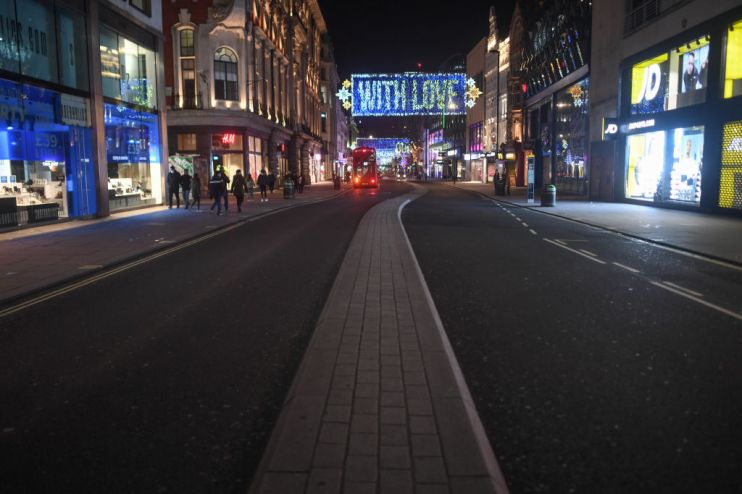Fight for the high street: Sunak’s Budget will stop the bleeding, but we must look long-term

For London’s struggling retailers and leisure operators, Rishi Sunak’s budget provided some welcome respite. The three month extension to the business rates holiday, the £5 billion Restart Grant scheme and the extension to the furlough initiative should enable some of the brands on the high street to survive, at least until they have the opportunity to reopen.
However, these broad measures do not go far enough to help the retail and leisure businesses in the capital.
London, alongside other major commercial centres in the UK, will naturally take longer to bring back traffic and trade than other areas of the country. We rely heavily on two key sets of visitors – office workers and tourists – neither of whom will be returning for the foreseeable future.
The Chancellor cannot simply assume that London’s rate of recovery will match other areas. It will take years of hard work and targeted support from the Government to get the city back on track.
The lack of tourists must also be addressed. At a time when the public is understandably enthusiastic to resume their holiday planning, there is little conversation around the return of tourists to British shores. Reopening our borders must be a two-way street if we are to give the economy the shot in the arm it needs.
While we acknowledge that borders cannot be universally opened, we would encourage the Government to consider those in priority markets, such as the Middle East, Far East and US. Around £5 billion of the annual turnover in the West End is generated by overseas visitors – surely we cannot afford to ignore this potential income in such uncertain economic times.
While the extension to the business rates holiday is an undeniable lifeline to businesses as lockdown is eased, it could all be undone by the issue of state aid. Those London businesses with portfolios of multiple stores are now concerned that they won’t be able to access the funding due to EU regulations on the state aid cap.
The Chancellor has delivered a generous budget, but one that is limited by the small print. He must give more clarity to businesses around state aid rules, otherwise London may risk losing its position as the leading, world class retail and leisure destination to other European cities, such as Paris or Milan.
The budget risks limiting our view of the high street, looking only to survive rather than to what the future holds for the retail and leisure industries. While cash injections from the Treasury might stop the bleeding for now, we have to look at the longer term damage that the pandemic has done to the high street.
As people have been forced to stay at home, online sales have soared and consumer shopping habits have changed. The Chancellor has hinted that an online sales tax could be introduced to bolster public finances, but this wasn’t introduced in yesterday’s budget. If he doesn’t apply it to all online sales in the UK – including for items such as holidays, flights and software, which were all traditional high street purchases thirty years ago – then he’s missing an open goal worth an additional £12 billion. To put that into perspective, the total revenue would equate to nearly half of the £30 billion that the Treasury collects in business rates.
No matter the state of online shopping, we must do everything in our power to evolve the high street to make it as enticing to the post-pandemic consumer as possible. Bringing in a more exciting mix of businesses – from new offices and experiential to leisure and cultural – will allow districts such as the West End to bounce back stronger than before.
We have already begun to embrace such changes, with £150 million pledged by Westminster City Council benefiting the district over the course of this year. But more must be done in central government to recognise the correlation between the success of the West End and the wider economy. We now need a targeted approach to rejuvenate the West End and bring it back to its deserved status as one of the leading shopping locations in the world.